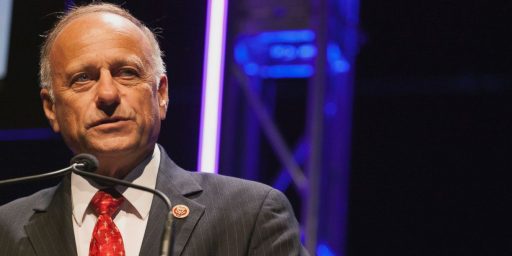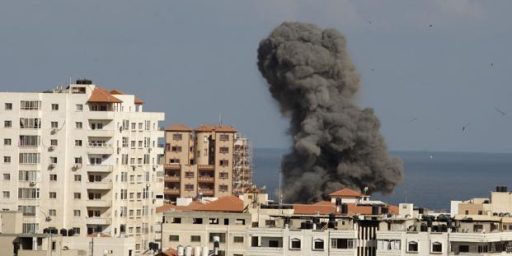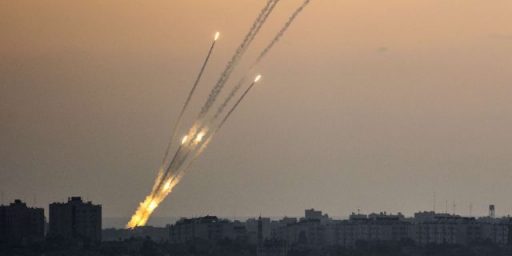American Civilization
Gail Heriot observes,
Americans really don̢۪t remember. For good or ill (and I think it̢۪s both), we̢۪re a forgetful people. If there̢۪s anybody in the entire country still stewing about something that occurred in 1759, they won̢۪t admit it.
Steve Bainbridge, responds with some interesting thoughts about this American ahistoricism, noting that our enemies are quite different in this respect.
9-11 taught us, however, that we have enemies whose memories of long-lost causes still burns hot. We need to learn to achieve justice, to forgive, but then still remember. The Muslim conquest of North Africa is too old to be a valid subject for acts of justice, with too much back and forth since for the moral case to be clear. 9-11 isn’t. We still await justice. I hope we can eventually forgive. But I also hope we never forget at least until that day when our enemies prove capable of forgetting their own centuries-old complaints, because until that day comes we need to be on our guard.
My guess is we will forget. Indeed, we’ve long since essentially gotten back to normal. All the predictions about national unity, bipartisan consensus, and the like turned out to be wrong.
Part of this, I suspect, is a function of having a professional military which insulates Americans from most of the hardships of war. But much of it is just a function of the type of society we’ve become. We have very little connectedness to any we-they group system and, indeed, have little sense of community, period. Civilization and prosperity has insulated us from having to think about the harshness of the world. There was a visceral reaction to 9/11, certainly, but it quickly dissipated. How long did it take to go into politically correct mode and start proclaiming that we’re not at war with Islam–a religion of peace, after all–but only with certain terrorists who didn’t play nice. And who we wanted to “bring to justice.” Indeed, any rhetoric that was militaristic was quickly met with cries of “Cowboy!” and calls to be more diplomatic.
Donald Sensing notes, though, that civilization is a pretty thin veneer.
As atrocious as the mob in Fallujah was, we’d best recognize that the line between civilization and mob is thin. If honest, we must admit that the mutilation of the security guards’ bodies there and the public spectacle made of them was not very different from literally decades of such deeds done here in America by Christian people.
To ask why some Fallujans committed the atrocity is to ask the wrong question. Better to ask of ourselves why we no longer do, for it is our restraint from such cruelty for several decades that is historically unusual. Mob lynchings here did not instantly cease, but they did cease fairly suddenly. What suppressed the mob in America? That’s one thing of many we need to teach Iraq.





